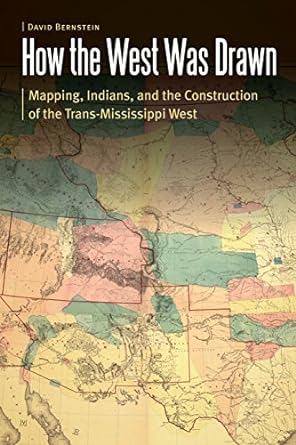$65.00
How the West Was Drawn – Mapping, Indians, and the Construction of the Trans-Mississippi West
How the West Was Drawn is a revisionist and interdisciplinary understanding of the global imperial contest for North America’s Great Plains that illuminates in fine detail the strategies of survival of the Pawnees, the Iowas, and the Lakotas amid accommodation to predatory Euro-American and Native empires.
Description
How the West was Drawn – Mapping, Indians, and the Construction of the Trans-Mississippi West
How the West was Drawn explores the geographic and historical experiences of the Pawnees, the Iowas, and the Lakotas during the European and American contest for imperial control of the Great Plains during the eighteenth and nineteenth centuries. David Bernstein argues that the American West was a collaborative construction between Native peoples and Euro-American empires that developed cartographic processes and culturally specific maps, which in turn reflected encounter and conflict between settler states and indigenous peoples.
Bernstein explores the cartographic creation on the Tran-Mississippi West through an interdisciplinary methodology in geography and history. He shows how the Pawnees and the Iowas — wedged between powerful Osages, Sioux, the horse- and captive-rich Comanche Empire, French fur traders, Spanish merchants, and American Indian agents and explorers–devised strategies or survivance and diplomacy to retain autonomy during this era. The Pawnees and the Iowas developed a strategy of cartographic resistance to predations by both Euro-American imperial powers and strong indigenous empires, navigating the volatile and rapidly changing world of the Great Plains by brokering their spatial and territorial knowledge either to stronger indigenous nations or to much weaker and conquerable American and European powers.
ISBN – 978-0-8032-4930-1
303 Pages
Hardback
6 1/4″ x 9 1/4″
University of Nebraska Press, 2018
Additional information
| Weight | 1.5 oz |
|---|

